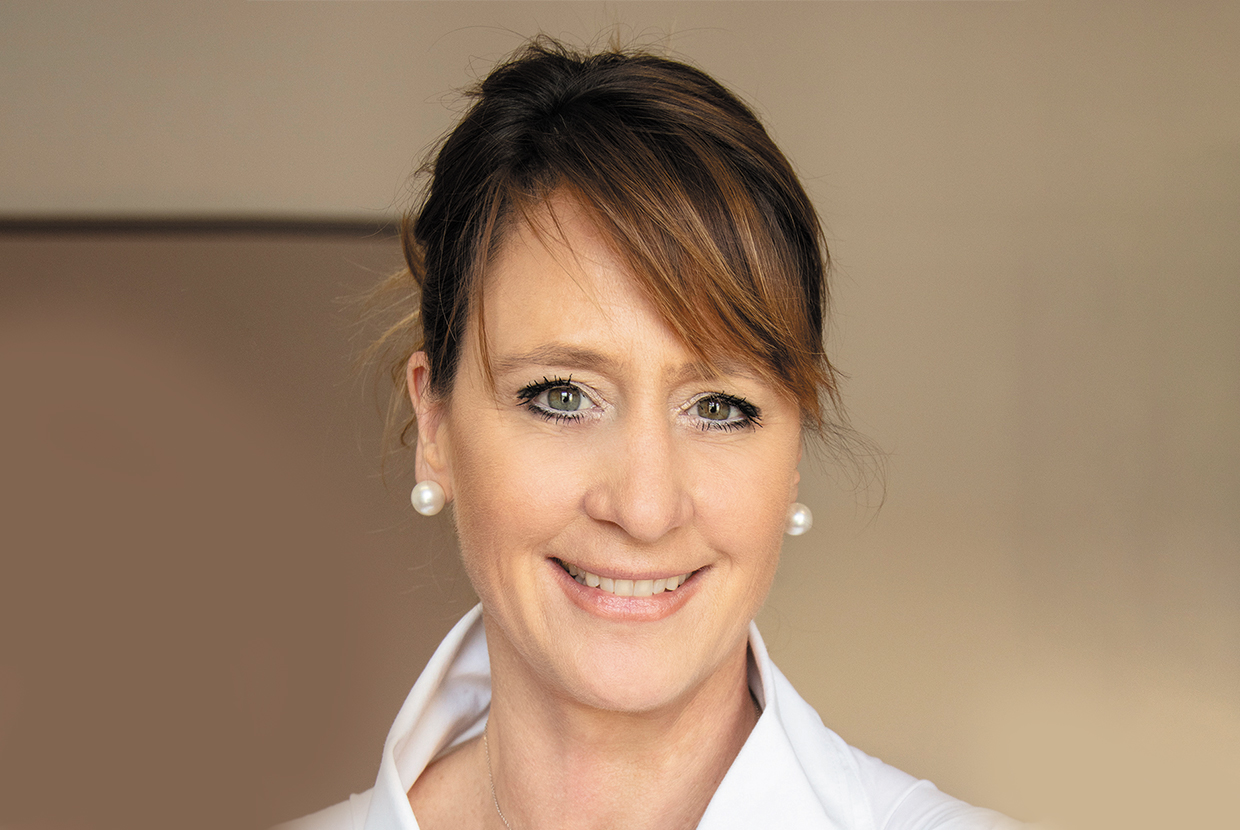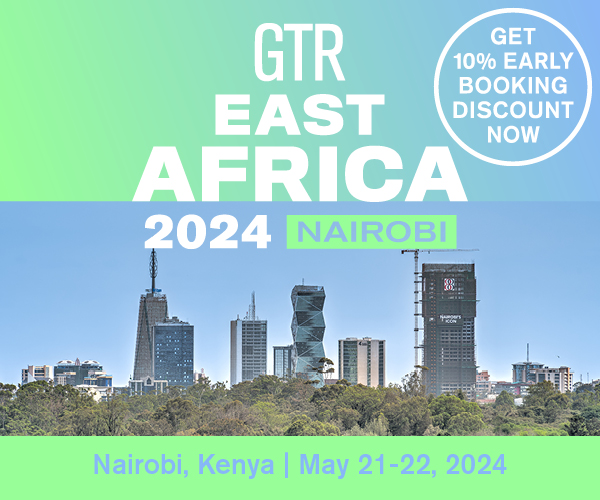
Last year was a tumultuous time for the commodities sector. Plummeting oil prices, the shock of the Covid-19 pandemic, and a series of high-profile frauds and insolvencies all combined to rock an industry that was already grappling with the impact of macroeconomic shifts – from tariffs to Brexit – and growing pressure to meet increasingly stringent environmental, social and governance (ESG) objectives. As a new year dawns, GTR speaks to three leaders in the industry to learn how they are charting a path forward for a more resilient future.

Sandra Primiero, global head of trade finance and lending, natural resource finance, Deutsche Bank
GTR: What did you find the most surprising in 2020?
Primiero: The biggest surprise for me occurred in March, when I looked at the oil price and it was US$20. Moments later, it was at US$10, and then just half an hour later it had turned negative. It was a huge shock, and coupled with Covid it really drove us to rethink how we can continue doing business. Of course, as anyone who has been in the commodities industry for many years knows, this is a volatile industry, and it has been encouraging to see those industry participants who have been able to make the best of the uncertainty getting good results.
GTR: Have the events of 2020 made you change the way you assess risk?
Primiero: We have always been quite diligent both on financial and also on non-financial risk. For example, our flow business on the commodity finance side is to the very largest extent transaction secured, which means that we only finance the underlying flow, which we know exists. We have always been extremely super selective, and while we are not considering a broad expansion of the portfolio, we do continue to finance the vast majority of the clients that we had been financing before.
GTR: You took on this role in 2019. How different is your approach from your predecessor’s, and how do you lead your team?
Primiero: We now have a stronger focus on secured transactions rather than only structured. In terms of approach, when I took over, we changed our strategy insofar that we really want to not only offer one product to the clients, but rather we want to build a relationship that includes a lot of different products with different product teams. As a person I am less visible than Mac [John MacNamara] was, because he was really the commodity person in the industry. I have incredibly capable colleagues in my team, and I want to stand with them rather than in front of them, so we can bring to bear all of the knowledge we have built up over the years.
GTR: What changes are you seeing in what clients are asking you for?
Primiero: One positive change that I see this year is a stronger focus on environmental aspects across the industry. There’s a lot of food for thought there, and it’s not going to be easy, but I think it’s long overdue and very necessary, and sometimes it requires a big event to make you think differently. Clients are now asking for sustainability-linked loans and we have closed the first transactions in that segment. For us, it has been very important to take our time to ensure we’re getting the definitions right in order to make sure that what we are calling a sustainability-linked transaction really is sustainable.
GTR: What are your objectives for 2021?
Primiero: For 2021 our focus will be on growing, with a strong focus on well-secured transactions with high ESG standards, because 2020 was really about maintaining the portfolio and staying close to clients, avoiding disruptions such as large losses from any one client that would risk making financing more challenging for the whole sector.

Christine McWilliams, global head of commodity and energy trade, Citi Treasury and Trade Solutions
GTR: You took on this role in mid-2020. What have been the biggest challenges you’ve faced so far?
McWilliams: We always expect change in banking. Part of the nature of the industry is to constantly be evolving, and we were encouraged to do that in many ways in 2020. The overlay of Covid challenged everyone to take on new digital tools, to look at different ways to communicate, and to innovate in order to continue with business. The energy and commodity industries have been undergoing change over the last 10 years, and 2020 saw many of those trends such as digitisation and the energy transition come to the forefront more dramatically than they had before.
As I took on my new global role, my team was faced with a confluence of these internal and external situations, and we needed to determine how to be most effective in this new era of trade to support our clients. There have certainly been some thought-provoking challenges, some difficult choices, and some long hours. I am very proud of my team and what we were able to accomplish together in 2020, and what that means for 2021.
GTR: What is your take on the need to incorporate a focus on ESG into conversations with clients?
McWilliams: The themes around ESG and the energy transition have been present, but the magnification and the focus on them intensified in 2020. On the environmental side, we have a real opportunity to be the catalyst for change. Raw commodities are the foundation of so many value chains across so many industries; commodities are a truly global business. We as financiers need to exhibit the same creativity that energy companies bring to engineering problems and the entrepreneurial spirit that commodity traders bring to their business so that we can offer thought leadership and solutions. Firms are making choices based on what would resonate with their stakeholders. Thus, we are exploring different solutions that can help our clients, and new ways to implement solutions such as supply chain financing.
On the social side, in my opinion it’s a bit more of an obvious imperative to include more diversity, to ensure that you are attracting the best talent regardless of where that comes from, and to encourage different points of view. In my view, the leadership style that is responsive to stakeholders today is very different compared to what we’ve seen in the past. I find that my team is most effective when I set a framework and then open the floor to allow others to give their points of view. With a talented team like ours, we may end up with a variety of approaches that may be a little different from what I expected, but are often the right ones for the individual clients and for the bank. Each one of our clients is unique, and my team needs to be able to respond to that.
GTR: 2020 saw the exit of some banks from commodity finance as a result of the combined impact of Covid and fraud losses. Are you reassessing your exposures to the sector?
McWilliams: I think it’s appropriate for banks to choose the kinds of transactions in which they think they can be most effective. We want to support clients in ways that make sense for our bank from a risk and controls perspective, where we can put our balance sheet best to work, and where we can do the most for our clients. As a result, while our product suite and dedication to our clients has not changed, we won’t be saying yes to everything. We will be trying our best to support clients as much as we possibly can and guiding towards the transactions and the types of deals where we think we can bring the most value. As a result, clients may have to do a bit more due diligence in 2021 compared to previous years. That is also why we genuinely value transparent and open communication with our clients year-round, because it means we can have conversations naturally as their strategies are evolving and hopefully share helpful observations with them without the process feeling overbearing.

Florence Schurch, secretary general, Swiss Trading and Shipping Association (STSA)
GTR: What are your objectives for 2021?
Schurch: For me, one of the most important aspects is rehabilitating the image of the commodities sector. What we have noticed, at least in Switzerland, is that people have very little awareness about commodity trade, and one of our main goals for this year will be to get people to realise that every aspect of their day-to-day life depends on this industry. We need the banks to support and finance the trade, we need the traders to buy and sell the commodities, and we need the shipping companies to transport the commodities, and we also need to give an authentic image of the trading sector, because it is a vital part of the real economy.
GTR: Do you see ESG becoming more important in the wake of Covid-19?
Schurch: There has definitely been more focus on all aspects of ESG, from human rights to green practices. We are spending a lot of time on this topic, particularly with regard to the smaller companies. Most traders are SMEs, and they don’t necessarily have the resources to fill out the ESG reports, for example, that they will need in order to access funding. These SME traders have done well in the past because they operate in their own niches, so if they cannot be financed anymore, it will be problematic. We are supporting them in achieving compliance with various objectives, and assisting them in implementing due diligence to address issues.
GTR: As some banks have pulled out of the sector, are you concerned that traders may not be able to access the finance they need?
Schurch: Not at all. In an economy, where there is a gap, it is very quickly filled. If it is not banks, it will be hedge funds, foundations, development banks, or any kind of other actor. I believe this will only be temporary, and while some of the large banks have exited the sector, I have also seen a lot of smaller banks which are seeing their business grow.
GTR: After a year in this role, what have you found the most interesting aspect?
Schurch: Prior to taking on this role, I worked for the Swiss Federal Police for 12 years and then spent 10 years as a lobbyist in Berne. While this role is very different from my previous ones, it is similar in that it also relies heavily on communication. When I was preparing for my job with the STSA board, I researched commodity trade and found a lot of negative information. I saw this as a real challenge: knowing as we do the importance of this sector to everyone, how is it possible that it has such a bad image? We need to communicate more about what this business actually is, and this is something I really enjoy. Ramon Esteve, the president of the STSA, recently said: ‘I want to make Switzerland as proud of its traders as it is of its cheese makers,’ and this is something I can really get on board with. And we do this by making sure we’re doing everything right – from a financial perspective as well as an ESG one.











